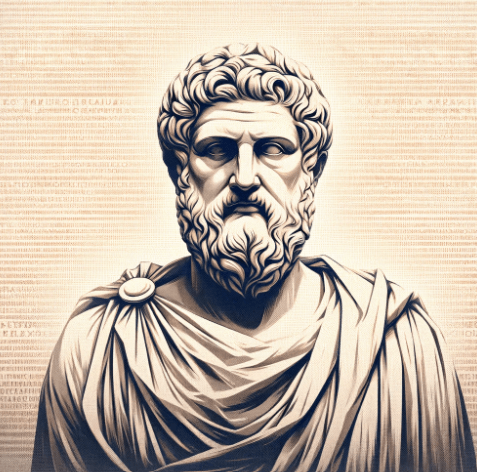King Cadmus of Thebes was a figure of immense importance, yet he was often overshadowed by the deeds of others more commonly celebrated.
His story is one of adventure, courage, and innovation, and as the founder of Thebes, one of the major cities in Greece, and the bringer of the Phoenician alphabet to the Greek world, Cadmus’s legacy is twofold.
This article delves into the life of Cadmus, exploring his legendary quest, the founding of Thebes, his challenges, and his enduring contributions to Greek civilization.
The Quest for Europa

Cadmus, a figure shrouded in the myths and legends of ancient Greece, was renowned not only as the founder of Thebes but also as a hero who faced the wrath of gods and monsters alike.
Cadmus was the son of King Agenor of Tyre and Queen Telephassa, and his journey into legend started with the abduction of his sister, Europa, by Zeus.
Tasked by his father to find Europa and not return without her, Cadmus embarked on an epic quest that led him far from home, a journey that ultimately destined him to a different path than the one he set out on.
Consultation with the Oracle of Delphi
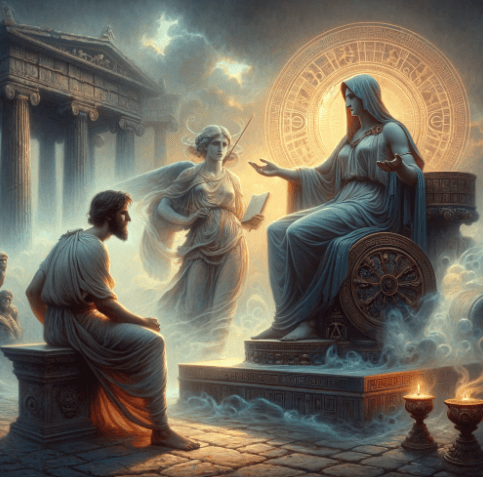
Unable to find Europa, Cadmus sought guidance from the Oracle of Delphi, the most revered source of divine wisdom in ancient Greece.
The oracle instructed him not to continue his search for Europa but instead to follow a special cow and found a city where the cow would lay down. Trusting in the oracle’s prophecy, Cadmus followed the cow, which led him to the site where he would establish Thebes.
However, before he could lay the city’s foundations, Cadmus encountered another hurdle: a fierce water dragon that guarded a sacred spring.
The Dragon’s Teeth and the Birth of Thebes’ Warriors
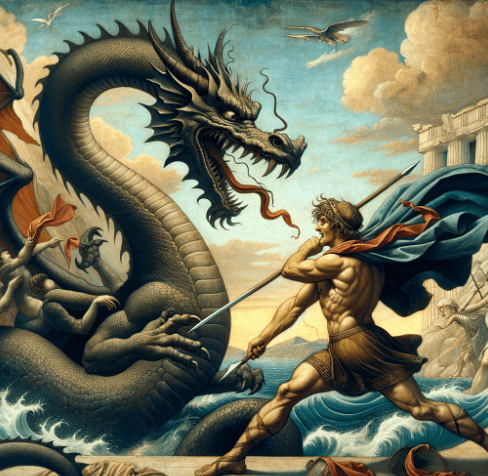
In an act of both bravery and necessity, Cadmus slayed the dragon, which was said to be a son of Ares, the god of war.
Following the advice of Athena, he sowed the dragon’s teeth into the earth. From these teeth sprang armed warriors, the Spartoi, who immediately began to fight each other. Only five survived the conflict, and these warriors would become the noble ancestors of Thebes, assisting Cadmus in the city’s construction.
This moment marked the birth of Thebes, a city that would play a central role in many Greek myths and legends.
The Curse of Ares and Cadmus’s Atonement
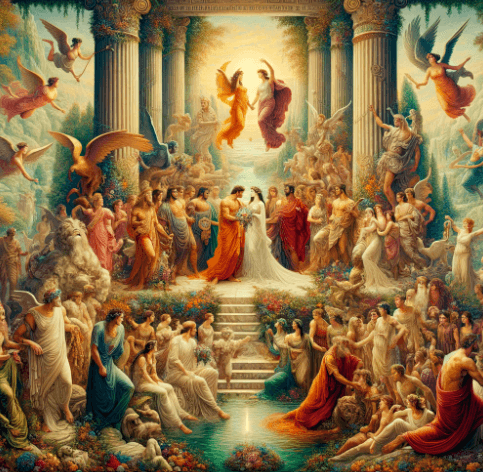
Cadmus’s slaying of Ares’s dragon son did not go unpunished. Ares cursed Cadmus and his lineage, a curse that would echo through generations, leading to tragedy for Cadmus’s descendants, including Oedipus and the house of Thebes.
To atone for his act, Cadmus was forced to serve Ares for an “eternal year,” which in the divine reckoning amounted to eight years. After serving his sentence, he was finally freed from the curse, and as a token of reconciliation, Ares gave him Harmonia, the goddess of harmony and Ares’s daughter, as his wife.
Their wedding was celebrated with great festivity, attended by gods and mortals alike, and it symbolized the union of different facets of life, from conflict and strife to harmony and peace.
The Legacy of Cadmus
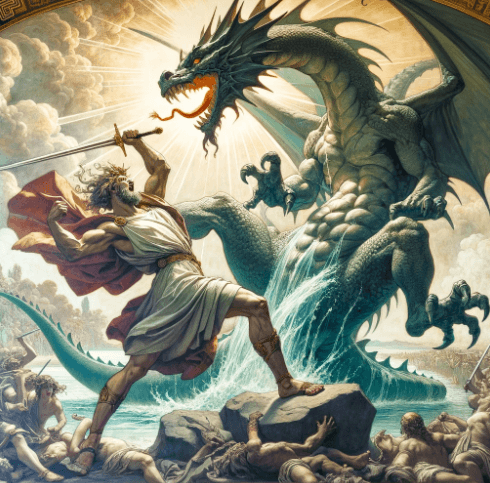
Cadmus’s contributions to Greek mythology and civilization extend beyond the founding of Thebes. He is credited with introducing the Phoenician alphabet to Greece, a gift that laid the groundwork for Greek literature, philosophy, and sciences.
This act of cultural transmission is perhaps Cadmus’s most enduring legacy, symbolizing the exchange of knowledge and ideas between civilizations. Despite the divine curse that plagued his family, Cadmus’s life and deeds encapsulate the quintessential themes of Greek mythology: heroism, divine intervention, and the inextricable link between human endeavor and fate.
Through the tale of Cadmus, Greek mythology conveys profound truths about the challenges and rewards of seeking a place in the world, fighting for one’s beliefs, and contributing to the advancement of civilization.
Get in Touch
Thank you for reading our article on Cadmus, the legendary founder of Thebes and the Greek alphabet.
If this deep dive into the life and legacy of one of Greek mythology’s pivotal figures has sparked your interest, you might also enjoy learning about the 12 Labors of Heracles.
Should you find yourself eager to learn more about Cadmus, or if you’re curious about other deities and heroes that populate ancient mythology, please don’t hesitate to get in touch at richard@mythologyplanet.com, or leave your thoughts and questions in the comment section below.
For a visual representation of the story of Cadmus, I recommend checking out the below YouTube video by Raconteur.
